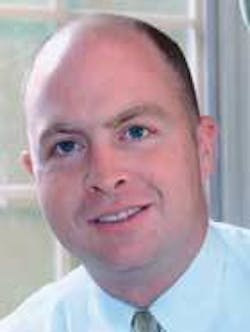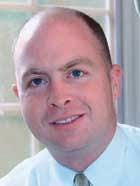Deal or no deal?
by Michael Gradeless, DDS
One of the most difficult situations I see with new-dentist transitions is the situation in which the new dentist has become fixated on a certain practice. Often they will become focused on completing a purchase even though their interests are not properly protected. You may actually have enough protection in a handshake deal if you know the other party well. If you are spending several hundred thousand dollars, it is not objectionable to seek independent advice and counsel. I hope you enjoy Dr. Jack Drone’s story.
-- Dr. Michael Gradeless
Dr. Gradeless: First, Dr. Drone, give us an overview of your practice and background.
Dr. Drone: I graduated from Northwestern (Ill.) University Dental School in 1998. I was in the last graduating class with a full, student body complement. The closure of the dental school was a terrible thing. It taught me, early on, that any deal can be made or broken. I agreed to buy one-half of my practice in the summer of 2004. Mercer Transitions set up the valuation and the terms of agreement. I am beginning the fourth year of a five-year buy-in. At the end of this period, I will borrow the necessary funds to complete the partnership. I have one partner, Eric Compton. His father, George, started the practice in 1957.
The most challenging aspect of the transition is “being the new guy.” My last name does not reflect the name of the practice, which is Compton Dental Center. For me, this has been a unique position. But I have tried to take the stance that, at the end of the day, all my patients really care about is quality dentistry and excellent patient care. Some of our patients are more comfortable with Eric taking care of them since his father had cared for them previously. Others would rather have someone different treat them. It really becomes a question of personality compatibility more than anything else. I view this as a great challenge rather than an obstacle.
Dr. Gradeless: How does your practice support your vision? Beyond making a living, what makes you excited to go to work every day?
Dr. Drone: One of my goals in dentistry is to practice for at least 50 years. I think this is the one goal that excites me every day. L.D. Pankey said that only 2 percent of dentists ever become masters of their profession, and only 8 percent ever become adept. I believe this mastership will occur somewhere down the road for me. So my thinking is, “Why would I ever step down when I am at the top of my game?” I will retire earlier if I choose, but my goal is to work in my practice until I am 77 or older.
Compton Dental Center is a 100 percent fee-for-service practice. I enjoy providing comprehensive restorative care for all patients. The one thing that dental school did not prepare me for was planning the “ideal” treatment for patients, then being able to sequentially phase this treatment over time so it is affordable and - most importantly for the patients - complete. I have to thank the Dawson Center for helping me understand this concept of “complete” dentistry. I think some of the best advice that I could give to the new dentist is to continue to be a student of dentistry. I mentioned the Dawson Center. But choose a group of people who you admire, then study and emulate them and their practices. Get involved in study clubs. To begin, pick like-minded individuals and simply present cases. Then take it from there. Remember that excellence is not a chance happening but the result of doing the same things repeatedly.
Dr. Gradeless: Tell us about strategic planning in your practice.
Dr. Drone: We do have strategic goals in place. We try to predict what we need to produce annually, and then make that number fit into our hourly and weekly production. From there, we can plan our calendar for vacations, CE, and study club meetings. I am not sure what indicates my professional growth, but when we get a new patient referral from an existing patient, it makes my day. It also excites me when that person is a patient for whom I have provided extensive restorative care. If I can make the patients from my “toughest” cases happy, it is gratifying.
Dr. Gradeless: What systems have allowed you to create ongoing success, and which systems are most important in your practice?
Dr. Drone: To me, the key element of creating a bond with my patients is the new-patient exam. This is the most important 90 minutes that I spend with patients. Everyone knows not to interrupt me while I am meeting with a patient for the first time. This is my opportunity to let the patient know that I understand his or her needs and wants. Rarely will I get a chance to learn more about this patient again, so I try to maximize my efforts during this initial meeting. Every patient is different. I do not take an FMX, mounted study models, or a transcranial film on every patient. But I am 100 percent ready to do so if a patient needs it. It has always puzzled me that dentists say there is not sufficient time for a comprehensive examination at the first appointment. New dentists have the ability to take the necessary time to do a great examination. This will then become part of their routine for the remainder of their careers. There is no better time to commit to a thorough examination than at the outset of a career.
Dr. Gradeless: Leadership is the art of influencing others to help you achieve success. What have you learned about managing staff? Do you have any pointers on leadership you would like to share with our readers?
Dr. Drone: I believe there are two types of leaders. There are those who lead by working side-by-side with their co-workers to achieve goals, and there are those who tell people what to do when they are in a position of leadership. I’m one who tries to lead by working alongside employees. I think this is the most effective way to learn because I also can learn much about an employee’s work ethic. For example, if we hire a new clinical assistant, I am in charge of teaching that person about the laboratory aspect. During this time, I explain which types of stone to use, how to vacuum mix the stone, facebows, etc. If the assistant resists doing these things, I am able to make a mental note immediately to monitor his or her progress in that area. I use this as a “check and balance” system for quality control. These are good situations for me to speak with the employee by using the following phrases:
- When you do/do not do ...
- It makes me feel ...
- What I need you to do is ...
- Do you think you could do that?
These are good discussions to have during early stages with employees, and can set the tone for your practice.
Dr. Gradeless: If you could offer one piece of advice to another new dentist, what would it be?
Dr. Drone: The best advice I could give a new dentist when buying a practice is to do research on the practice that you are thinking of purchasing. When I was a senior at Northwestern University, I was poised to purchase a practice in a small town in northern Indiana. I had more than $100,000 in student loan debt, a wife to provide for, and $10,000 in credit card debt. In order to be fair to both parties, I suggested we should have an independent valuation of the practice. When I asked the retiring dentist about this idea, he became enraged. He said the practice was not for sale to me if I was going to have that type of attitude.
I went back to school the following Monday and told an instructor about the situation. During lunch, he offered me an associateship. We agreed upon the terms, and sealed it with a handshake. We never had a dispute in the four years that I worked with him. My wife and I wanted to be closer to where we grew up, so I left that practice five years ago and moved to our current office. My legal agreement is more than 70 pages, and has been five years in the making. These are three different practices at three different times in my life. I would not approach any of them differently than I did. Enjoy the journey. It is a great time to be in the profession of dentistry.Dr. Jack Drone graduated from Northwestern University Dental School in 1998. He practices in Rensselaer, Ind., and resides in DeMotte, Ind., with his wife, Jana, and four sons. Reach him by e-mail at [email protected].
Dr. Michael Gradeless, a 1980 graduate of Indiana University, practices preventive dentistry in Indianapolis with an emphasis on cosmetics and implants. He is an adjunct faculty member at Indiana University, where he teaches the Pride Institute university curriculum of dental management. Contact him at (317) 841-3130, or e-mail [email protected].

